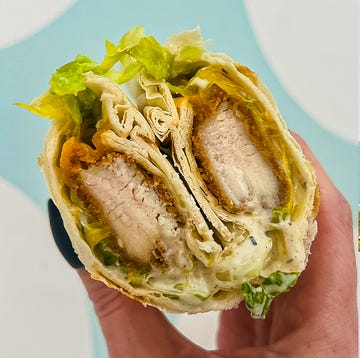The U.S. Food & Drug Administration (FDA) will change the information it provides in food recall announcements from here on out. Now, food recalls will include more details about the stores where recalled foods were sold, according to the FDA.
FDA Commissioner Dr. Scott Gottlieb said in a statement, "Moving forward the FDA intends to publicize retail consignee lists for food recalls when the food is not easily identified as being subject to a recall from its retail packaging, or lack thereof, and if the food is likely to be available for consumption."
Up to this point, the FDA "has not traditionally released lists of specific retailers where recalled foods may have been purchased" due to certain confidentiality between the supplier and retailer. In most cases, the info publicized by the recalling company is enough for people to identify, avoid, or dispose of the product, Dr. Gottlieb noted.
That said, when the recalled product doesn't have a name brand or label, it makes it difficult to identify. "This might include deli cheese, nuts, rawhide chews, or pet treats sold in bulk and fresh fruits and vegetables sold individually," Dr. Gottlieb continued.
The FDA said in situations where a product has been linked to a foodborne illness, providing retailer information "can help consumers more quickly and accurately recognize recalled product and take action to avoid the product or seek assistance if they've already been exposed." This summer, the FDA released retail distribution information by state during a pre-cut melon recall that was associated with Salmonella, "so consumers could better identify where the recalled food may have been purchased."
The FDA's draft guidance describes such situations when disclosing retailer information for recalled products is appropriate. The draft guidance is open for public comments and suggestions.
The circumstances in which the FDA will announce retailer information "will particularly apply in situations associated with the most serious recalls," the statement also said. More specifically, the information will be publicized when consumption of the recalled product is likely to cause serious adverse health issues or death.
"Knowing where a recalled product was sold during the most dangerous food recalls can be the difference between a consumer going to the hospital or not. While we can't prevent every illness, we can make sure we provide information to consumers to prevent more people from becoming sick from a recalled or hazardous food product," Dr. Gottlieb concluded.














